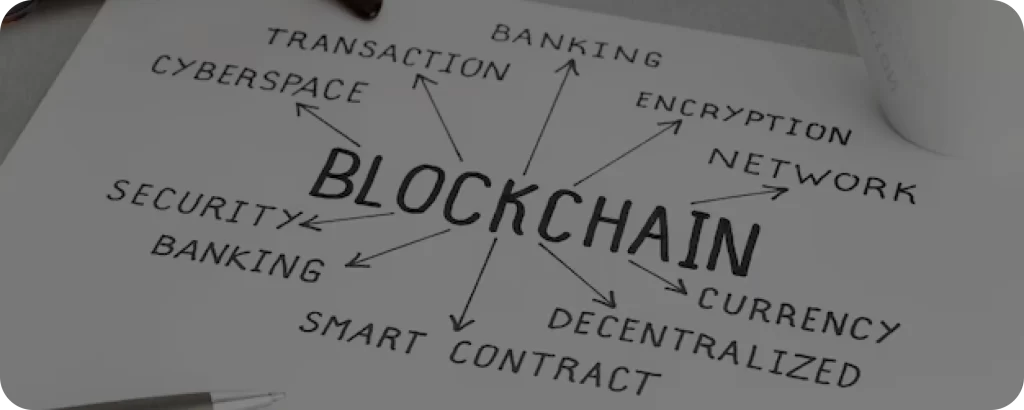Blockchain - Benefits, Drawbacks and Everything You Need to Know

Blockchain technology has been promoted as a disruptive technology that provides unprecedented levels of security, which is required and desired not only by the IT or finance industries but by any industry in general, making it an exceptionally flexible technology. Blockchain development services aid in the creation of decentralized blockchain networks that improve data and transaction traceability and security. There are numerous benefits of Blockchain development as well as drawbacks. In this blog further, we will let you know the blockchain advantages & disadvantages:
Blockchain in 2023: A Look at the Latest Developments and Predictions for the Future
Advantages of Blockchain:
- Efficiency: Completing a transaction using traditional paperwork processes is laborious since it requires third-party mediation and is prone to human errors. Blockchain can streamline and discipline these traditional procedures, removing the risk of errors and increasing trading efficiency and speed. Because there is only one ledger, participants do not need to retain different papers, resulting in significantly less clutter. And when everyone has access to the same information, it is easier to build trust. Settlements can also be made smooth and easy without the use of intermediaries.
- Decentralization: This is the core characteristic of blockchain technology, and its strength is that no additional instance is necessary to function as an intermediary to authenticate transactions or operations, lowering transaction validation times.
- Traceability: It is difficult to trace products back to their origins in complex supply networks. However, with blockchain, all goods trades are recorded, giving you an audit trail to understand where a specific asset comes from. You also learn about every stop the goods took on their trip, and this level of product tracking can help verify the authenticity and prevent fraud.
- Auditability: It is another part of the previously mentioned argument. Because each transaction is recorded in blockchain for its entire existence, there is already an audit trail for you to see and validate the legitimacy of your asset.
- Transparency: Blockchain makes transaction histories more visible than ever before. All nodes in the network share a copy of the documentation because it is a sort of distributed ledger. The data on a blockchain ledger is easily viewable by everyone. If a transaction history changes, everyone in the network will notice the change and the new record. As a result, all currency conversion information is available to everyone.
- Cost savings: Because blockchain eliminates the need for third-party intermediaries, firms save a lot of money. You don’t need anyone else to define the norms and policies of exchange if you can trust your trading partner. The cost and time spent on documentation and changes are also reduced because everyone has access to a single, immutable version of the ledger.

Schedule a call to know more about Blockchain and the cost to create the App.
Disadvantages of Blockchain:
- Costly implementation: While this technology has minimal user costs, it also has substantial implementation costs for businesses, which inhibits its widespread adoption and implementation.
- Inefficiency: It is inefficient to have multiple network users validate the same actions because only one will obtain the reward from this mining process. This method, and the fact that many people are doing the same thing, implies a massive waste of energy and technology that is not very environmentally friendly.
- Private keys: Excessive security can also be difficult; for example, in the case of private keys, if lost, it is nearly impossible to recover these keys, posing a risk for all holders of cryptographic values.
- Storage: As the number of users increases, so will the number of operations that must be integrated into the blocks to be stored, requiring more space inside the miners’ computers, eventually exceeding the capacity of the hard disks.
- Unemployment: Because there will be no need for intermediaries once Blockchain technology is embraced and implemented, all of the intermediation sectors for the validation of payments and procedures will be reduced to the point of disappearing, as will the jobs required for them.
- Scalability: Bitcoin, a blockchain application, is extremely popular. However, it can only process seven transactions per second, whereas Hyprledger can process 10,000 and Visa can process 24,000. With scalability in mind, the practical application of blockchain becomes more difficult to envision. Because each participant node must verify and approve a transaction, a Bitcoin exchange can take several hours.
Blockchain – Benefits, Drawbacks and Everything You Need to Know
It is a disruptive technology that is still undergoing ongoing transformation and adaptation, and as such, it continues to present and will continue to present some issues. Before this trend of widespread adoption of Blockchain technology, it is critical to be aware of its benefits and drawbacks. As blockchain overcomes our apparent problems, blockchain product development will be combined with the Internet of Things to build confidence between parties, minimize the danger of tampering, cut costs by eliminating intermediaries, and expedite the pace of settlements from days to virtually instantaneous. Blockchain development services in India provide end-to-end blockchain application development services to assist product firms and non-IT enterprises in the development of dependable blockchain solutions.
Recent Blogs
-
Key Considerations for Hiring Expert Software Developers
-
A Comprehensive Guide to Augmented Reality (AR) App Development
-
Unleashing Business Potential: Achieving Massive Outcomes with Big Data Analytics Services
-
Leveraging Salesforce Customer Data Platform (CDP) to Understand and Engage Customers
-
What are the benefits of using virtual reality solutions?






